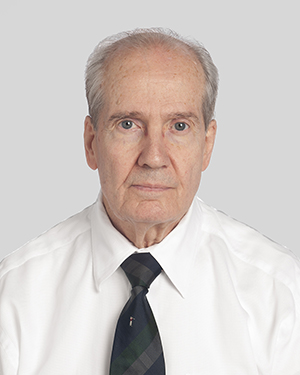Claudio Fiocchi Laboratory
-
Claudio Fiocchi Laboratory
- Principal Investigator
- Research
- Our Team
- Publications
- Careers
- Research News
Research
We study the cause and mechanisms of Crohn's disease and ulcerative colitis, two forms of chronic inflammation of the gastrointestinal tract. These conditions are grouped together under the name of inflammatory bowel disease (IBD). Our investigation is carried out by studying tissue samples and different types of cells derived directly from the normal and inflamed human intestine, or from animal models in which inflammation is artificially or spontaneously induced. We try to understand how inflammation starts and continues permanently in the gut, and how chronic inflammation leads to complications of IBD, such as strictures that cause intestinal blockade and need surgical interventions.
Because both Crohn's disease and ulcertaive colitis are categorized as prototypical complex diseases, we are currently undertaking collaborative studies with experts in systems biology and bioinformatics to identify the central regulators of the underlying disease network that we named the "IBD Intercatome".
Biography
Education & Professional Highlights
Research
Our research is focused on the pathogenesis of inflammatory bowel disease (IBD). The approach we adopted is the investigation of immune events occurring in the bowel of Crohn's disease and ulcerative colitis patients, as well as animal models of IBD. Our studies include the identification of mechanisms of mucosal T-cell death and survival in gut inflammation, investigation of tolerance of mucosal T-cells for the autologous enteric flora and its possible loss in IBD, characterization of the interactions between mucosal T-cells and endothelial and stromal cells, and the study of immune-driven angiogenesis in intestinal inflammation.
Experiments are carried out using mononuclear cells isolated from the intestinal mucosa, especially T cells and T cell subsets, epithelial cells, microvascular endothelial cells, myofibroblasts and stromal cell-derived extracellular matrix. We have recently developed novel technique to isolate and grow intestinal epithelial cell organoids to test the effect of luminal contents on epithelial cell differentiation.
The overall goal is to uncover fundamental defects of immunoregulation that may underlie the triggering or maintenance of a chronic state of inflammation in the bowel.
Our Team
Selected Publications
View publications for Claudio Fiocchi, MD
(Disclaimer: This search is powered by PubMed, a service of the U.S. National Library of Medicine. PubMed is a third-party website with no affiliation with Cleveland Clinic.)
- Danese S, Sans, M, de la Motte C, et al. Angiogenesis as a novel component of inflammatory bowel disease pathogenesis. Gastroenterology. 2006;130(7):2060-2073.
- Scaldaferri F, Vetrano S, Sans M, et al. VEGF-A links angiogenesis and inflammation in inflammatory bowel disease pathogenesis. Gastroenterology. 2009;136(2):585-595.
- Rieder F, Kessler S, West G, et al. Mucosal inflammation-induced endothelial-to-mesenchymal transition: a novel mechanism of intestinal fibrosis. Am J Pathol 2011;179:2660-2673.
- de Souza HS, West GA, Rebert N, et al. Increased levels of survivin, via association with heat shock protein 90, in mucosal T cells from patients with Crohn's disease. Gastroenterology 2012;143:1017-1026.
- Schirbel A, Kessler S, Rieder F, et al. Pro-angiogenic activity of TLRs and NLRs: a novel link between gut microbiota and intestinal angiogenesis. Gastroenterology 2013;144:613-623.
- D'Alessio S, Correale C, Tacconi C, et al. VEGF-C-dependent stimulation of lymphatic function ameliorates experimental inflammatory bowel disease. J Clin Invest. 2014 Sep;124(9):3863-78.
- de Souza HS, Fiocchi C. Immunopathogenesis of IBD: current state of the art. Nat Rev Gastroenterol Hepatol. 2016;13:13-27.
Careers
Training at Lerner Research Institute
Our education and training programs offer hands-on experience at one of the nationʼs top hospitals. Travel, publish in high impact journals and collaborate with investigators to solve real-world biomedical research questions.
Learn MoreResearch News

Drs. Fiocchi and Cominelli will lead Cleveland Clinic and Case Western Reserve University in an interdisciplinary program to train young investigators towards research independence.

The prestigious award recognizes AGA members who have made lifelong efforts dedicated to mentoring trainees in gastroenterology.
